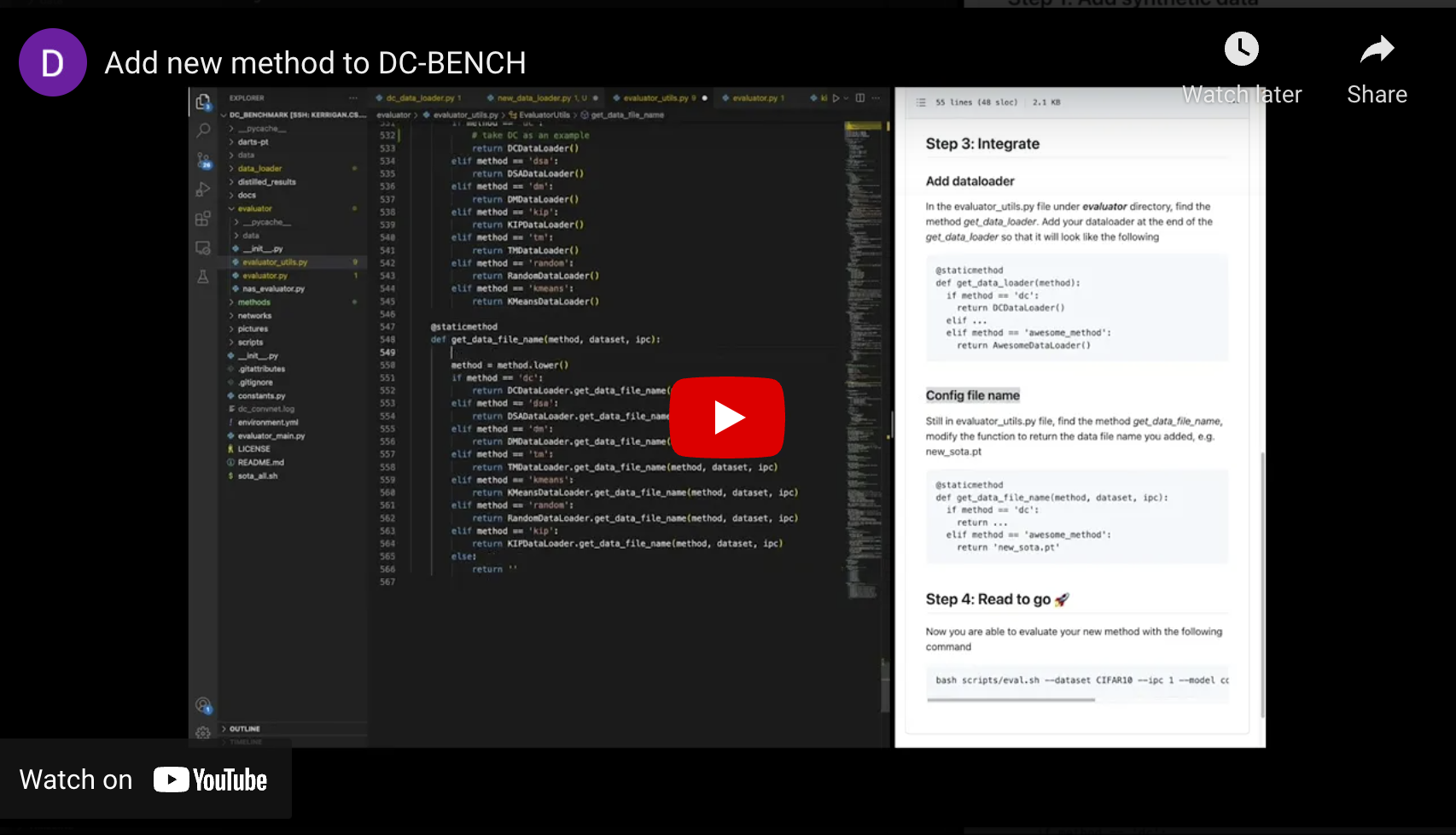
01/22/2023 We are currently updating our codebase, you may see inconsistent code versions
This is the official codebase for paper DC-BENCH: Dataset Condensation Benchmark.
It covers the following:
- Condensed Dataset
- How to set up
- Ran an evaluation
- How to integrate
- Commands to reproduce all the SOTA methods
The corresponding leaderboard can be found here: DC Leaderboard
A quick Youtube demo for adding new methods
Condensed Data
We provide all condensed data here, this will be needed to reproduce the benchmark results. Please see the following sections for details on how to use the data.
How to set up
Step 1
Run the following command to download the benchmark.
git clone git@github.com:justincui03/dc_benchmark.git
Step 2
Download all(or part) of the data from this shared link and put them under distilled_results folder in the project root directory.
The project structure should look like the following:
- dc_benchmark
- distilled_results
- DC
- DSA
- ...
- ...
- distilled_results
Step 3
Run the following command to create a conda environment
cd dc_benchmark
conda env create -f environment.yml
Run an evaluation
Running an evaluation is very simple with DCBench.
Simply run the following command from the project root director you just downloaded.
bash scripts/eval.sh --dataset CIFAR10 --ipc 1 --model convnet --aug autoaug
Here are the configurable parameters
- dataset: choose between CIFAR10, CIFAR100 and tinyimagenet
- ipc: choose between 1, 10 and 50
- model: choose between convnet, convnet4, mlp, resnet18, resnet152, etc
- aug: choose between autoaug, randaug, imagenet_aug, dsa,etc
Neural Architecture Search
We incorparete the standard NAS-Bench-201 library into our codebase. You can start a simple NAS experiment by running the following command
cd darts-pt
bash darts-201.sh --dc_method tm
- dc_method: which dataset condensation method to test, choose between random, kmeans-emb, dc, dsa, dm, tm
For the detailed setup, please refer to DARTS-PT
How to integrate
DC-Bench is designed to be extensible. In the following sections, we will introduce how to integrate new methods and introduce new datasets which can be as simple as a few lines of code.
Integrate a new method
A new method can be introduced in the following 3 steps:
- Define a new dataloader(if not already exist)
- Config the code to use the new dataloader
- Run the eval command same as all other methods
A detailed tutorial can be found new method integration
Introduce a new dataset
Introducing a new dataset is even easier, it can be done in the following 2 steps:
- Extend the code to read from the new dataset(if the dataset is not already included in pytorch)
- Run the eval command by specifying the new dataset
A detailed tutorial can be found new dataset integration
Introduce new augmentations
Adding new augmentations can be done with one line of code, e.g.
data_transforms = transforms.Compose([transforms.RandAugment(num_ops=1)])
More details can be found at new aug integration
Introduce new models
With DC-Bench's modularized design, it's also easy to introduce new models for evaluation.
As long as the new model follows the standard PyTorch interfacenn.Module, you can intergare with model with the following example code
if model_name == 'mlp':
return MLP(channel, num_classes, im_size)
Detailed instructions can be found at new model integration
SOTA commands
We collected all the commands to reproduce the SOTA synthetic results in our codebase. All the parameters are provided by the original authors.
Example condensed datasets
 |
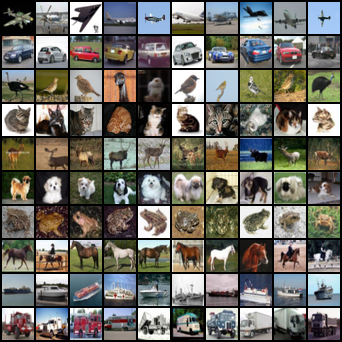 |
|---|---|
| Randomly selected images | Kmeans-emb selected images |
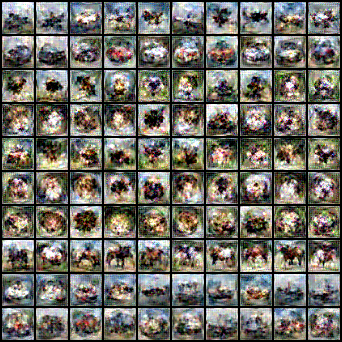 |
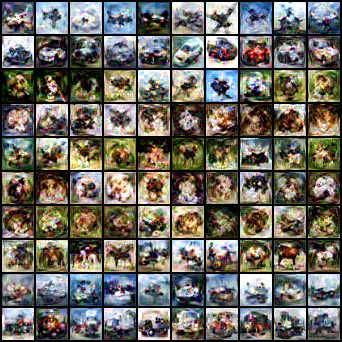 |
| Synthetic images by DC | Synthetic images by DSA |
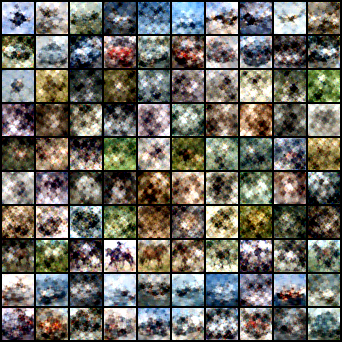 |
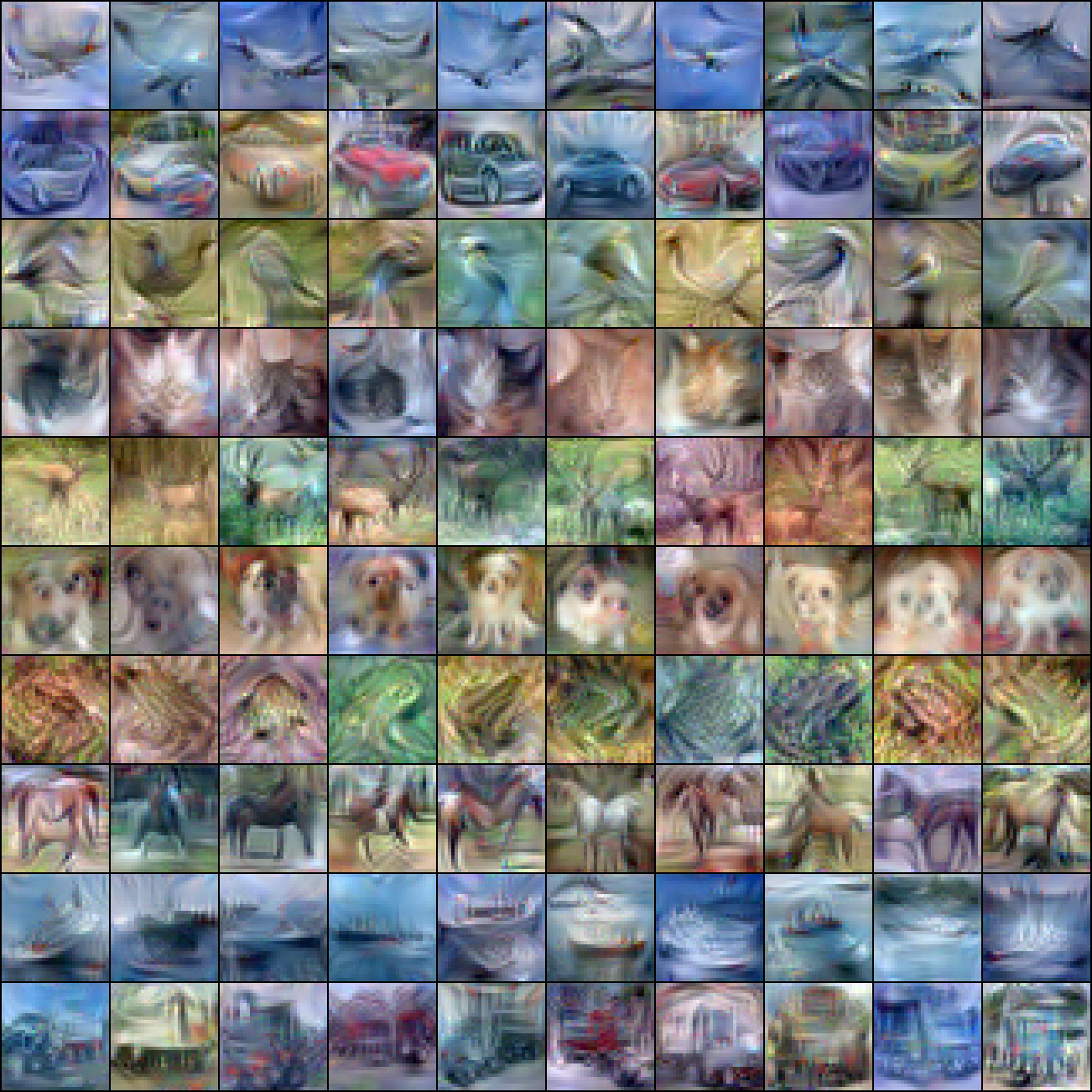 |
| Synthetic images by DM | Synthetic images by TM |
Acknowledgments
Part of our code are adpoted from the following github repositories with license
Citation
@article{cui2022dc,
title={DC-BENCH: Dataset Condensation Benchmark},
author={Cui, Justin and Wang, Ruochen and Si, Si and Hsieh, Cho-Jui},
journal={arXiv preprint arXiv:2207.09639},
year={2022}
}

